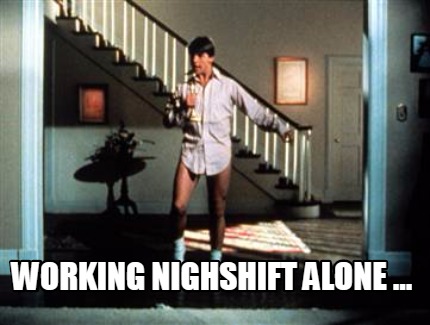 |
| Sometimes it's hard to tell if a new company sees different as okay |
Let's say, for example, you are a young female non-christian liberal working in company dominated by white male republican men. You try not to advertise your differences, and just blend in. But one day, you feel uncomfortable with something about how you are being treated because you are different. Maybe as a woman that's receiving explicit texts from male coworkers, or being treated like a secretary. Or as a non-christian maybe people are trying to convert you in the middle of the work day. Or if you are a different race maybe somebody made a racial slur. I've seen all of these happen in the work place... But would you feel comfortable reporting these issues somebody in HR who is also a white christian republican man? Would you feel like he'd understand your point, or would he relate better to the people harassing you?
Maybe he would understand and take appropriate action to help you. This is by no means saying that all (or even most) white christian men wouldn't try to help. But the point is, if there is any hesitation that he might not - victims are likely to let problems go unreported rather than risk being blacklisted from the industry.
At least that's how I've felt when I'm in precarious positions. And with many of my stories (being discounted for my age, having my success attributed to my feminine wiles, coworkers placing bets on who will date the new female engineer, coworkers "flirting" by being assholes, being set up with clients' children and so many more gems) my friends have asked "why didn't you report this?!"
The answer is that like all well crafted "good ol' boys" clubs, everyone I could have complained to appeared to be a member of that club. Even the guys in HR at one company would spend afternoons discussing how they were going to fuck their wives that night loudly enough that we could hear every word even with the door closed. If they are part of the problem, how on earth am I expected to ask them for help? I want to be an engineer, not spend my life fighting legal battles or defending myself for every little thing. (I totally left that place by the way, so don't feel too bad for me now.) I imagine the same story is true for many other people; not all of whom have the ability to move on as easily as I did.
Which brings me back to my main point- an inclusive environment is constructed from the top down by diverse leadership and a diverse HR department. And an inclusive environment is how a company retains talented people- not just people who fit into a mold. So when you are joining a new place, don't just stare past the HR rep. Take a good look around, and try to figure out if this is a company culture where you feel you can thrive.
Cheers,
Vanessa
















